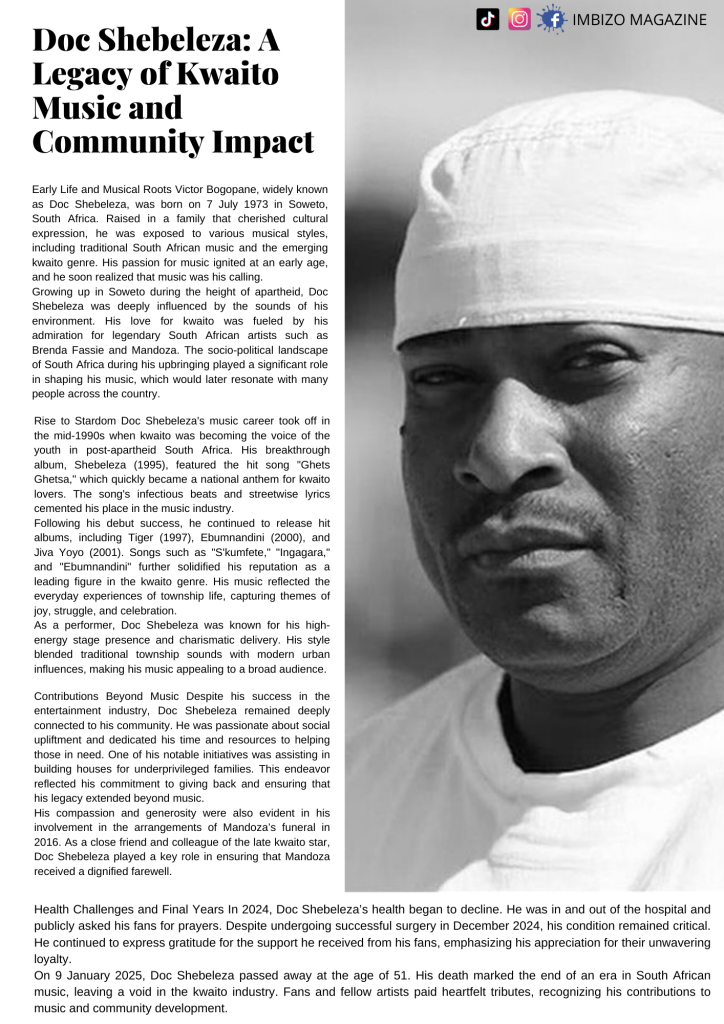Early Life and Musical Roots Victor Bogopane, widely known as Doc Shebeleza, was born on 7 July 1973 in Soweto, South Africa. Raised in a family that cherished cultural expression, he was exposed to various musical styles, including traditional South African music and the emerging kwaito genre. His passion for music ignited at an early age, and he soon realized that music was his calling. Growing up in Soweto during the height of apartheid, Doc Shebeleza was deeply influenced by the sounds of his environment. His love for kwaito was fueled by his admiration for legendary South African artists such as Brenda Fassie and Mandoza. The socio-political landscape of South Africa during his upbringing played a significant role in shaping his music, which would later resonate with many people across the country.
Rise to Stardom Doc Shebeleza’s music career took off in the mid-1990s when kwaito was becoming the voice of the youth in post-apartheid South Africa. His breakthrough album, Shebeleza (1995), featured the hit song “Ghets Ghetsa,” which quickly became a national anthem for kwaito lovers. The song’s infectious beats and streetwise lyrics cemented his place in the music industry. Following his debut success, he continued to release hit albums, including Tiger (1997), Ebumnandini (2000), and Jiva Yoyo (2001). Songs such as “S’kumfete,” “Ingagara,” and “Ebumnandini” further solidified his reputation as a leading figure in the kwaito genre. His music reflected the everyday experiences of township life, capturing themes of joy, struggle, and celebration. As a performer, Doc Shebeleza was known for his high-energy stage presence and charismatic delivery. His style blended traditional township sounds with modern urban influences, making his music appealing to a broad audience.
Contributions Beyond Music Despite his success in the entertainment industry, Doc Shebeleza remained deeply connected to his community. He was passionate about social upliftment and dedicated his time and resources to helping those in need. One of his notable initiatives was assisting in building houses for underprivileged families. This endeavor reflected his commitment to giving back and ensuring that his legacy extended beyond music. His compassion and generosity were also evident in his involvement in the arrangements of Mandoza’s funeral in 2016. As a close friend and colleague of the late kwaito star, Doc Shebeleza played a key role in ensuring that Mandoza received a dignified farewell.
Health Challenges and Final Years In 2024, Doc Shebeleza’s health began to decline. He was in and out of the hospital and publicly asked his fans for prayers. Despite undergoing successful surgery in December 2024, his condition remained critical. He continued to express gratitude for the support he received from his fans, emphasizing his appreciation for their unwavering loyalty.
On 9 January 2025, Doc Shebeleza passed away at the age of 51. His death marked the end of an era in South African music, leaving a void in the kwaito industry. Fans and fellow artists paid heartfelt tributes, recognizing his contributions to music and community development.
